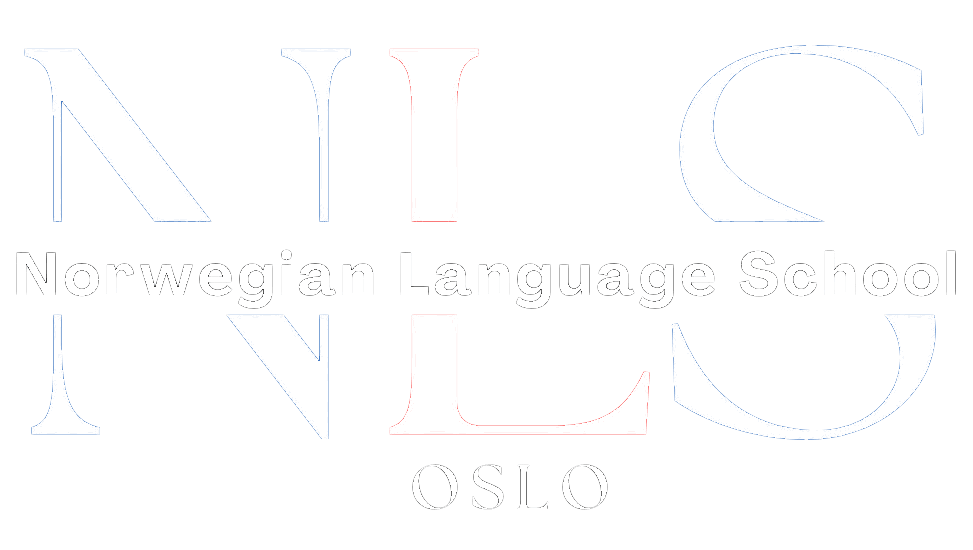

Embracing Norwegian in the Workplace: A Norwegian Language Guide
Welcome to our comprehensive guide on embracing Norwegian in the workplace. In today’s globalized world, language skills play a vital role in professional settings, and Norwegian is no exception. Whether you’re a business professional or an aspiring entrepreneur, having proficiency in Norwegian can open doors to new opportunities and give you a competitive edge.
In this language guide, we will explore the rising trend of Norwegian in the workplace, delve into the benefits of Norwegian proficiency, and provide strategies for enhancing cross-cultural communication. We will also discuss the impact of a multilingual workforce on business success and the importance of effective communication in a global workplace.
Furthermore, we will address the significance of Understanding Norwegian culture and how language can serve as a bridge to gain deeper insights. We will also highlight the importance of investing in language training programs and the value of workplace language training for employee development.
Whether you’re interested in expanding your career opportunities or fostering better communication in your organization, this guide will equip you with the necessary knowledge and resources to embrace Norwegian in the workplace.
Table of Contents
ToggleKey Takeaways:
- Norwegian language skills provide a strategic advantage in the workplace
- Proficiency in Norwegian enhances cross-cultural communication
- A multilingual workforce contributes to business success and fosters innovation
- Effective communication is crucial in a global workplace
- Investing in language training programs can benefit both individuals and organizations
The Rising Trend of Norwegian in the Workplace
In today’s globalized business landscape, the rising trend of Norwegian in the workplace is becoming increasingly evident. With the increasing interconnectedness of economies and the growing importance of language diversity, Norwegian has emerged as a language of significance for professionals working in multinational companies and organizations.
Globalization and Language Diversity
The phenomenon of globalization has led to an unprecedented level of interconnectedness among countries and cultures. As businesses expand their operations internationally, the need for effective communication across borders has become a key priority. In this context, language diversity plays a crucial role in ensuring successful interactions and collaborations among professionals from different linguistic backgrounds.
Language diversity brings a variety of perspectives, ideas, and insights to the table, fostering innovation and creativity within organizations. It allows for a deeper understanding of cultural nuances and facilitates the building of stronger relationships with clients and partners from different regions. The ability to communicate in multiple languages, including Norwegian, enhances cultural competence and enables professionals to navigate the complexities of a globalized business environment.
Why Norwegian Matters in Business Today
As Norway continues to play a significant role in various industries such as energy, technology, and finance, the demand for Norwegian language skills in business has seen a notable uptick. Norwegian is the primary language of communication for around 95% of Norwegians, making it a valuable asset for professionals working in or with Norwegian companies.
There are several specific reasons why Norwegian matters in today’s global business landscape:
- Access to Opportunities: Knowing Norwegian opens up a plethora of opportunities in sectors where Norway has a strong presence. Professionals with Norwegian language skills are highly sought after in industries such as oil and gas, renewable energy, and maritime.
- Effective Communication: Being able to communicate in Norwegian enables professionals to build trust and rapport with their Norwegian counterparts. It fosters stronger relationships and enhances business negotiations and collaborations.
- Cultural Understanding: Understanding Norwegian culture is essential for establishing meaningful connections and conducting business in Norway. Language skills provide insights into local customs, etiquette, and social norms, which are crucial for successful interactions.
The rising trend of Norwegian in the workplace reflects the growing recognition of its importance in today’s global business environment. Organizations and professionals who embrace Norwegian language skills gain a competitive advantage in the market, opening up a world of opportunities and establishing themselves as culturally sensitive and adaptable.
| Benefits of Embracing Norwegian in the Workplace |
|---|
| Access to a wide range of career opportunities in industries where Norwegian is crucial |
| Enhanced communication and relationship-building abilities with Norwegian-speaking colleagues and clients |
| Deeper understanding of Norwegian culture, customs, and business practices |
| Increased competitiveness and marketability in a globalized business landscape |
Benefits of Norwegian Proficiency in Professional Settings
Proficiency in the Norwegian language can offer numerous advantages in professional settings. Whether you are looking to enhance your career prospects, improve communication, or navigate multicultural work environments, learning Norwegian can open doors to new opportunities and contribute to your professional success.
Here are some key benefits of having Norwegian language skills in the workplace:
- Improved Career Prospects: Norwegian proficiency can set you apart from your peers and make you a valuable asset to employers who conduct business with Norwegian companies or have Norwegian-speaking clients. It expands your job opportunities and increases your competitiveness in the job market.
- Effective Communication: Knowing Norwegian enables you to effectively communicate with Norwegian-speaking colleagues, clients, and partners. It breaks down language barriers, fostering clear and efficient communication, which is crucial for building strong professional relationships and achieving work objectives.
- Enhanced Collaboration: Language skills contribute to better collaboration in multicultural work environments. By speaking Norwegian, you can bridge cultural gaps, understand different perspectives, and foster a sense of inclusivity. This leads to increased teamwork, cooperation, and productivity among colleagues from diverse backgrounds.
- Cultural Understanding: Proficiency in Norwegian provides insight into Norwegian culture, values, and customs. It allows you to navigate social situations, understand business etiquette, and adapt to the cultural nuances of working with Norwegian individuals and organizations.
- International Networking: Learning Norwegian opens doors to an extensive network of professionals, both within Norway and globally. It enables you to connect with Norwegian-speaking professionals, attend industry events, and access international job opportunities, expanding your professional network and increasing your chances for career growth.
By investing in Norwegian language proficiency, professionals can gain a competitive edge, foster effective communication and collaboration, and capitalize on international business opportunities.
“Having Norwegian language skills is like holding a key that unlocks a wealth of professional potential and opens doors to a vibrant and diverse global market.”
To illustrate the benefits of Norwegian proficiency further, let’s take a look at the table below, which highlights the workplace advantages of learning Norwegian:
| Advantages of Learning Norwegian in the Workplace | Description |
|---|---|
| Increased employability | Proficiency in Norwegian makes you a desirable candidate for employers operating in Norway or seeking to expand their business in Norwegian-speaking markets. |
| Better client relationships | When you can communicate with Norwegian-speaking clients in their native language, it builds trust, strengthens relationships, and enhances customer satisfaction. |
| Enhanced cross-cultural collaboration | Knowing Norwegian allows for smoother collaborations with Norwegian colleagues and facilitates understanding across cultural differences, leading to improved teamwork and productivity. |
| Expanded networking opportunities | Proficiency in Norwegian enables you to connect with Norwegian professionals and explore business opportunities in Norway or with Norwegian companies worldwide. |
| Broader career prospects | With Norwegian language skills, you can pursue career opportunities in various fields such as international business, translation and interpretation, tourism, and more. |
By recognizing the workplace advantages of learning Norwegian, professionals can make informed decisions about investing their time and resources into acquiring Norwegian language proficiency.
Norwegian Language Skills and Cultural Competence
In order to effectively communicate and collaborate with Norwegian-speaking colleagues, it is essential to develop Norwegian language skills and cultural competence. Understanding Norwegian culture not only enhances interpersonal relationships but also ensures smoother business interactions in a professional setting.
Understanding Norwegian Culture
Norwegian culture is rich in traditions, values, and customs that shape the way people think, behave, and interact in both personal and professional contexts. By gaining a deeper understanding of Norwegian culture, professionals can navigate social interactions, business negotiations, and workplace dynamics with greater ease and sensitivity.
Language as a Bridge to Cultural Insights
Language serves as a bridge that connects individuals and allows for a deeper exploration of a culture’s intricacies. Learning the Norwegian language goes beyond mere communication; it enables professionals to access cultural insights, idiomatic expressions, and nuances that are integral to understanding Norwegian culture. By mastering the language, professionals can engage in meaningful conversations and build rapport with Norwegian colleagues.
“Language learning is not only about words and grammar; it is about gaining cultural competence. The more we understand a culture through its language, the stronger our connections become.”
With Norwegian language skills, professionals can gain valuable cultural insights that can help them adapt their communication style, behavior, and business practices to the Norwegian context. This cultural competence fosters stronger relationships, trust, and mutual understanding, leading to more effective collaboration and successful outcomes in the workplace.
Enhancing Cross-Cultural Communication with Norwegian
Strategies for Effective Intercultural Dialogue
When it comes to cross-cultural communication, Norwegian can be a powerful tool for fostering understanding and promoting effective dialogue in the workplace. By embracing Norwegian language skills, professionals can break down language barriers and enhance intercultural communication. Here are some strategies to help you navigate cross-cultural communication with Norwegian-speaking colleagues:
- Language Learning: Invest time and effort in learning Norwegian to have a better grasp of the language and cultural nuances. This demonstrates your commitment to understanding your Norwegian-speaking colleagues and bridges the communication gap.
- Cultural Sensitivity: Be aware of cultural differences and customs. Respect cultural norms and adapt your communication style accordingly to ensure effective cross-cultural interactions.
- Active Listening: Give your full attention when communicating with Norwegian speakers. Actively listen to their words, gestures, and expressions to understand their perspective and ensure clear communication.
- Ask for Clarification: Don’t hesitate to ask for clarification if you don’t understand something. It’s better to seek clarification than to make assumptions that may lead to misunderstandings.
- Non-Verbal Communication: Pay attention to non-verbal cues such as body language, facial expressions, and eye contact. These cues provide valuable insights into the meaning and emotions behind the words being spoken.
Overcoming Language Barriers
Language barriers can hinder effective communication. However, with the right approach, these barriers can be overcome. Here are some tips to help you overcome language barriers when communicating with Norwegian-speaking colleagues:
- Use Simple Language: Keep your language simple and avoid jargon or complex vocabulary. This makes it easier for non-native speakers to understand and follow the conversation.
- Slow Down Your Speech: Speak at a moderate pace, allowing the listener to follow and process the information. Avoid speaking too fast or rushing through the conversation, as it can lead to confusion.
- Use Visual Aids: Utilize visual aids such as charts, diagrams, or illustrations to support your verbal communication. Visual cues can enhance understanding and bridge language gaps.
- Encourage Questions: Create an environment that encourages questions and clarifications. Prompt your Norwegian-speaking colleagues to ask questions if they need further information or have any doubts.
- Seek Assistance: If necessary, engage the help of a professional translator or interpreter to ensure clear communication in important meetings or discussions.
By implementing these strategies and tips, professionals can enhance cross-cultural communication, embrace intercultural dialogue, and overcome language barriers when communicating with Norwegian-speaking colleagues.
Norwegian in the Workplace: A Strategic Advantage
In today’s globalized market, Norwegian language skills have become a valuable asset that can provide individuals and businesses with a strategic advantage. The ability to communicate effectively in Norwegian sets professionals apart from their peers and opens doors to new opportunities.
Companies that prioritize language diversity and invest in Norwegian language training for their employees gain a competitive edge in the global marketplace. Having employees who can engage with Norwegian-speaking clients, partners, and customers creates a strong foundation for building successful business relationships.
Furthermore, Norwegian language proficiency enables organizations to tap into the rich cultural and business opportunities that Norway offers. By understanding the Norwegian language and culture, companies can navigate the Norwegian business landscape more effectively, making informed decisions and earning the trust and respect of their Norwegian counterparts.
Investing in language training programs is key to developing this strategic advantage. Language training equips professionals with the necessary linguistic skills to communicate fluently in Norwegian and understand the nuances of the language. It also provides insights into the cultural context, enabling better collaboration and ensuring that business interactions are conducted with cultural sensitivity.
By embracing Norwegian in the workplace, individuals and businesses position themselves for success in the global arena. Norwegian language skills not only facilitate effective communication but also reflect a commitment to diversity, inclusion, and the pursuit of excellence.
Language Diversity in Corporate Settings
In today’s globalized business world, language diversity plays a significant role in corporate settings. Embracing a multilingual workforce can bring numerous benefits to organizations, enhancing creativity, innovation, and problem-solving capabilities.
Companies that value language diversity create an environment that fosters collaboration and understanding among employees from different cultural backgrounds. The ability to communicate in multiple languages facilitates effective communication and improves cross-cultural interactions.
One of the major advantages of a multilingual workforce is the increased adaptability to international markets. With employees who can speak different languages, companies can expand their global reach and create stronger connections with clients and partners worldwide.
Language diversity also contributes to enhancing creativity and innovation within organizations. Different linguistic perspectives and cultural experiences bring fresh insights and ideas, enabling companies to develop unique solutions and approaches to challenges.
While language diversity offers numerous benefits, managing it effectively can be challenging. Organizations need to implement strategies and practices that promote inclusivity and ensure equal opportunities for all employees. Providing language training programs, cultural awareness workshops, and creating language support resources are essential for supporting a diverse workforce.
Additionally, promoting a culture of respect and appreciation for different languages and cultures is crucial for a harmonious working environment. Encouraging employees to share their cultural experiences and perspectives can foster a sense of belonging and strengthen the overall team dynamic.
By embracing language diversity, organizations can unlock the full potential of their workforce, foster innovation, and create a competitive edge in the global market.
| Benefits of Language Diversity in Corporate Settings |
|---|
| Enhanced creativity and innovation |
| Improved problem-solving capabilities |
| Effective communication across cultures |
| Greater adaptability to international markets |
| Increased global reach and client engagement |
The Impact of a Multilingual Workforce on Business Success
In today’s globalized business landscape, having a multilingual workforce has become increasingly crucial for achieving sustainable success. Companies that invest in language skills and promote linguistic diversity among their employees gain a significant competitive edge and can foster innovation within their organizations.
The Competitive Edge of Language Skills
Language skills provide companies with a unique advantage in the global marketplace. A multilingual workforce can effectively communicate and engage with customers and partners from different cultures and languages. This not only enhances customer satisfaction but also enables businesses to tap into new markets and expand their reach.
Moreover, language skills enable companies to navigate international negotiations effectively. Communicating in the native language of business partners builds trust, facilitates smoother interactions, and increases the likelihood of successful collaborations. Being able to establish meaningful connections across language barriers can lead to stronger relationships with clients and stakeholders, ultimately driving business growth.
Fostering Innovation Through Diversity
Language diversity contributes to fostering innovation within organizations. When people from different language backgrounds collaborate, they bring unique perspectives and ideas to the table. This diversity of thought inspires creativity, sparks innovation, and encourages problem-solving from a variety of angles.
A multilingual workforce can overcome cultural and linguistic barriers, promoting better understanding and collaboration among team members. Different languages and cultural contexts often come with distinct approaches to problem-solving and decision-making. By embracing this diversity, companies can tap into a wealth of knowledge and experience, encouraging out-of-the-box thinking and driving innovation.
| Benefits of a Multilingual Workforce: |
|---|
| Enhanced communication with customers and partners from different cultures |
| Expanded market reach and potential for global expansion |
| Establishment of trust and stronger relationships in international business dealings |
| Promotion of creativity and innovation through diverse perspectives and ideas |
| Improved problem-solving capabilities from different cultural approaches |
A company that embraces a multilingual workforce not only gains a competitive advantage but also fosters an inclusive and supportive work culture. By valuing linguistic diversity and investing in language training programs, businesses can unlock the full potential of their workforce and achieve sustainable growth and success in an increasingly interconnected world.
Importance of Communication in a Global Workplace
In today’s interconnected world, effective communication plays a crucial role in the success of businesses operating in a global workplace. The ability to communicate clearly and efficiently across borders and cultures is essential for building strong relationships, fostering cooperation, and overcoming international business barriers.
Breaking Down International Business Barriers
International business barriers, such as language differences, cultural misunderstandings, and varying communication styles, can hinder collaboration and hinder business growth. However, by developing language skills, including proficiency in Norwegian, professionals can bridge these gaps and facilitate effective communication with international counterparts.
Language skills enable individuals to understand and be understood, eliminating the need for reliance on interpreters or machine translation tools that may not fully capture the nuances and subtleties of communication. By speaking the language of their international partners, professionals can establish rapport, convey ideas accurately, and overcome language barriers that might impede successful collaborations.
Building Trust Across Borders
Trust is a foundation for successful business relationships, especially in global contexts. Building trust across borders requires effective communication that goes beyond mere language proficiency. It involves understanding cultural norms, customs, and etiquette, as well as adapting communication styles to align with the expectations of international partners.
Professionals who possess strong communication skills and cultural competence are better equipped to establish trust with their counterparts from different cultural backgrounds. By demonstrating respect, actively listening, and understanding cultural nuances, they can strengthen relationships, foster cooperation, and enhance overall business success.
Furthermore, effective communication contributes to building trust within teams and across organizational hierarchies. Clear and transparent communication encourages open dialogue, promotes collaboration, and strengthens employee engagement, resulting in increased productivity and improved workplace satisfaction.
In conclusion, effective communication is of paramount importance in a global workplace. By breaking down international business barriers and building trust across borders, professionals with strong communication skills, including proficiency in Norwegian, can thrive in multicultural environments and contribute to the success of their organizations.
Workplace Language Training: Investing in Employee Development
In today’s globalized world, where businesses operate on an international scale, workplace language training has become an essential investment for employee development. Providing language learning opportunities to employees not only enhances their professional growth but also contributes to the overall success of the organization.
Investing in language skills has several key benefits:
- Improved Communication: Language training equips employees with the tools to effectively communicate with clients, colleagues, and partners from diverse linguistic backgrounds. Clear and efficient communication fosters stronger relationships and collaboration, leading to better business outcomes.
- Expanded Market Reach: Language proficiency opens up new market opportunities for businesses. Employees with language skills can effectively engage with customers and clients from different regions, building trust and creating competitive advantages.
- Enhanced Cultural Competence: Language training goes beyond just acquiring linguistic skills; it enables employees to gain cultural knowledge and sensitivity. This cultural competence allows for better understanding and relationship-building with international stakeholders.
- Career Advancement: Employees who invest in language skills stand out in the job market and have greater prospects for career advancement. Multilingual professionals often have more opportunities for promotions, overseas assignments, and increased responsibilities.
Implementing language training programs in the workplace requires careful planning and consideration:
- Assessing Language Needs: Identify the specific language requirements within your organization. Determine which languages are most relevant to your industry, target markets, and current workforce.
- Choosing the Right Training: Select a language training program that aligns with the needs and goals of your employees. Consider factors such as teaching methodologies, course duration, flexibility, and the availability of personalized instruction.
- Supporting a Positive Learning Environment: Create a supportive and inclusive atmosphere for language learning. Offer resources, such as language learning software or mobile apps, and encourage employees to practice their skills through real-world application and interaction.
- Monitoring Progress and Providing Feedback: Regularly assess the progress of employees in their language learning journey. Provide constructive feedback and recognition for their efforts, motivating them to continue developing their language skills.
| Language Training Benefits | Benefits of Workplace Language Training |
|---|---|
| Improved Communication | Clear and efficient communication with diverse stakeholders |
| Expanded Market Reach | Engaging with clients and customers from different regions |
| Enhanced Cultural Competence | Greater understanding and relationship-building in multicultural settings |
| Career Advancement | Increased opportunities for promotions and professional growth |
How Learning Norwegian Can Enhance Your Career
In today’s globalized job market, learning Norwegian can open up a world of career opportunities and contribute to your professional development. Having proficiency in the Norwegian language can give you a competitive edge, enabling you to stand out from your peers and advance in your chosen field.
By learning Norwegian, you can access a wide range of employment prospects, both in Norway and internationally. Many multinational companies value employees who possess language skills, particularly in less commonly taught languages like Norwegian. This demand for Norwegian speakers creates a niche market where your language proficiency can be highly sought after.
Proficiency in Norwegian can lead to career enhancement within specific industries, such as tourism, oil and gas, and shipping, where Norway plays a significant role. Your ability to communicate effectively with Norwegian clients, customers, and colleagues can help build strong business relationships and open doors to new opportunities.
Moreover, learning Norwegian showcases your adaptability and cultural competence, demonstrating that you are willing to immerse yourself in the language and culture of a foreign country. This can be highly valued by employers looking for individuals who can work effectively in multicultural environments.
“Learning Norwegian has been a game-changer in my career. It gave me a competitive edge and set me apart from other candidates. I was able to secure a position with a Norwegian company and build strong relationships with clients. It opened up new possibilities that I never would have had otherwise.” – Natalia, Marketing Manager
Real-life success stories like Lisa’s exemplify the career-enhancing potential of learning Norwegian. Whether you are looking to secure a job in Norway, expand your professional network, or advance within your current company, investing time and effort in learning Norwegian can bring significant benefits to your career.
So, why wait? Start your journey towards career enhancement and professional development by learning Norwegian today!
Implementing the Norwegian Language Learning Programs at the NLS Norwegian Language School
Choosing the Right Language Training for Your Team: NLS Norwegian Language School
At the NLS Norwegian Language School, we understand the importance of choosing the right language training program for your team. Our Norwegian language learning programs are specifically tailored to meet the needs of professionals and businesses looking to enhance their language skills in an efficient and effective manner.
By enrolling your team in our language training programs, you can expect:
- Customized Curriculum: Our experienced instructors will work with you to develop a curriculum that aligns with your team’s specific goals and industry requirements.
- Flexible Learning Options: We offer both in-person and online language training programs to accommodate the needs of busy professionals and teams located in different geographical areas.
- Industry-Relevant Content: Our language training programs focus on practical language skills and real-life scenarios that are relevant to your team’s professional environment.
- Interactive Learning Experience: Through engaging activities, role-plays, and group discussions, we ensure an interactive and immersive learning experience for your team.
- Progress Tracking: We provide regular assessments and progress reports to help you monitor your team’s language proficiency and track their development over time.
Best Practices for Language Learning Initiatives
When implementing a language learning initiative for your team, it’s essential to follow best practices to ensure optimal results. Here are some key recommendations:
- Set Clear Goals: Clearly define the objectives and expected outcomes of the language learning program, considering the specific needs of your team and the desired level of proficiency.
- Create a Supportive Environment: Foster a culture of language learning within your organization by providing resources, encouragement, and opportunities for practice.
- Encourage Regular Practice: Language learning requires consistent practice. Encourage your team members to engage in regular language practice through conversations, reading, writing, and listening exercises.
- Promote Cultural Awareness: In addition to language skills, emphasize the importance of cultural competence to facilitate effective communication and collaboration in multicultural work environments.
- Provide Ongoing Support: Language learning is a continuous process. Offer ongoing support, such as additional training sessions, language exchange programs, or access to language learning tools and resources.
By implementing these best practices and choosing the NLS Norwegian Language School as your language training provider, you can ensure that your team develops the necessary Norwegian language skills to thrive in today’s global business landscape.
Conclusion
Summarizing the Benefits of Embracing Norwegian at Work
Embracing Norwegian in the workplace offers numerous benefits for professionals and businesses alike. In this article, we have explored the rising trend of Norwegian in the global business landscape, emphasizing its significance in today’s diverse and interconnected world.
Proficiency in Norwegian provides a strategic advantage, opening doors to new opportunities and enhancing career prospects. It promotes effective cross-cultural communication, fosters cultural competence, and builds trust across borders. By investing in Norwegian language skills, individuals can set themselves apart and contribute to the success of their organizations.
If you’re ready to take the next steps towards multilingualism, look no further than the NLS Norwegian Language School. We offer comprehensive Norwegian classes designed to help you develop and enhance your language skills. Whether you’re a beginner or advanced learner, our experienced instructors will guide you on your language learning journey.
Taking the Next Steps Towards Multilingualism: Norwegian classes at the NLS Norwegian Language School
Enrolling in Norwegian classes at the NLS Norwegian Language School is a great way to immerse yourself in the language and culture. Our courses are tailored to meet the specific needs of professionals, providing practical language skills and cultural insights that will benefit you in the workplace.
Don’t miss out on the opportunity to embrace Norwegian and gain a competitive edge. Take the next steps towards becoming multilingual by enrolling in our Norwegian classes today. Start your language learning journey and discover the countless advantages of embracing Norwegian in the professional world.
FAQ
Why is it important to embrace Norwegian in the workplace?
Embracing Norwegian in the workplace is important for several reasons. Firstly, it enhances communication and collaboration with Norwegian-speaking colleagues and clients, leading to more effective teamwork and improved business relationships. Secondly, it demonstrates cultural competence and shows respect for Norwegian culture, which can build trust and rapport. Finally, having Norwegian language skills can provide individuals and businesses with a competitive advantage in the global market.
How can Norwegian language skills benefit professionals?
Norwegian language skills can benefit professionals in many ways. They can open up new career opportunities, especially in industries that have strong ties to Norway or are expanding into the Norwegian market. Norwegian proficiency can also enhance cross-cultural communication and understanding, leading to more successful business interactions. Additionally, knowing Norwegian can increase cultural competence and give professionals a broader perspective on global issues.
Can learning Norwegian improve communication in multicultural work environments?
Yes, learning Norwegian can significantly improve communication in multicultural work environments. It allows for more efficient and accurate communication with Norwegian-speaking colleagues and clients. It also helps to break down language barriers and fosters a sense of inclusivity and belonging. By learning Norwegian, professionals can effectively navigate cultural nuances, understand diverse perspectives, and build stronger relationships with their colleagues from different backgrounds.
Where can professionals receive Norwegian language training?
Professionals interested in learning Norwegian can receive language training at the NLS Norwegian Language School. The school offers corporate training programs specifically designed for companies and organizations looking to enhance their employees’ language skills. These programs can be customized to fit the specific needs and schedules of the participants, providing a convenient and effective way to learn Norwegian in a professional setting.
What are the benefits of workplace language training?
Workplace language training offers numerous benefits for both individuals and businesses. Firstly, it allows employees to improve their language skills, which in turn enhances their professional development and career advancement opportunities. Secondly, it promotes effective communication and collaboration, leading to improved productivity and teamwork. Finally, investing in language training demonstrates a commitment to employee growth and satisfaction, which can contribute to higher job satisfaction and employee retention rates.

Norwegian A1-A2
Course Overview The Norwegian A1-A2 course is an online program focused on teaching essential Norwegian grammar and vocabulary. It includes a variety of materials and topics, with opportunities to interact with a Norwegian teacher entirely online. Curriculum Highlights The course covers key areas such as grammar and vocabulary and topics such as family, daily life, education, work, traditions, and leisure activities. Who Should Enroll? This course is perfect for beginners or those at the A1 or A2 levels who want to improve their Norwegian skills. What You Get Access to the full Norwegian A1-A2 course. A monthly 1-hour online conversation with a teacher. Many written and oral assignments. Comprehensive information on Norwegian grammar, Norwegian vocabulary and how to use them, important sentence structures, etc. Tips on additional resources to further enhance your Norwegian learning.
0 students enrolled
Last updated Dec 10th, 2024
If you want to learn Norwegian, you can register for classes here. We look forward to hearing from you and helping you become fluent in Norwegian.






